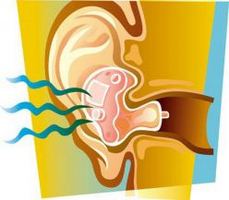Ototoxicity Definition, Symptoms, Signs, Medications, Causes, Treatment
What is Ototoxicity?
Ototoxicity is considered as ear poisoning due to the damage of the inner ear like the cochlea and auditory nerve. This is usually caused by medications which are ototoxic or has a harmful effect on the inner ear causing problems with hearing and imbalance. Sometimes the hearing is permanently or temporarily altered depending on the severity of the problem.
The inner ear has 2 parts which are important because it possess important functions. The cochlea is responsible for hearing while the vestibular system is responsible for the sense of balance. There are a number of drugs that are considered to be ototoxic so when these are prescribed, certain hearing problems like tinnitus or “ringing of the ears” and a loss of balance should be reported to the doctors right away.

Ototoxicity Symptoms, Signs
Ototoxicity signs and symptoms in adults include problems in hearing and it is usually bilateral or coming from both ears. Then, they may also feel as if something is ringing in their ears or tinnitus. At the same time, they will also sense a loss of balance making it difficult for them to walk in a straight path.
For kids however, they may not talk properly so parents wouldn’t know what the problem is especially if they are under medications. Parents should take important cues if their kids have hearing problems like having difficulty hearing whenever their names are called. Sometimes it also affects the speech of the child since he or she is not able to hear things properly. As a result, they find it difficult to talk. Also, they become inattentive and have problems with learning especially when they are sent to school. Also, a noticeable sign from children with ototoxicity is that they turn the volume louder when listening to music or watching television. They also don’t respond nor turn their heads when hearing a sudden loud voice like banging of the door or utensils falling on the ground.
To some extent, in worse cases, even with a simple standing up position or walking, the patient feels “woozy”. They also feel a sudden blurring vision with a simple move of their head called as oscillopsia. They will also feel nausea and vomiting, dizzy, syncope and even elevated blood pressure.
Ototoxicity Causes and Risk Factors
Ototoxicity is almost always caused by drug reactions. There are different types of drugs that cause hearing problems and imbalance to persons who are taking this. What is quite alarming is that even over the counter medications can cause ototoxicity so patients should be advised to always read the drug interactions and possible side effects to avoid this problem.
1. Aminoglycosides ototoxicity
Aminoglycosides is a class of antibiotics that can cause ototoxicity. Usually these drugs are given via intravenous route so there is a greater chance that it can cause ear damage since the drug passes through the blood stream. Some of the popular drugs prescribed by doctors include gentamicin, streptomycin, neomycin and others.
2. Vancomycin ototoxicity
Vancomycin is an antibiotic that is mostly used as a prophylaxis for treating gram negative bacteria. usually, this drug is the “last resort” when all other antibiotic are used but have failed to treat the patient from the infection. For patients with pseudominas infection, if metronidazole is not effective, this potent drug is prescribed by doctors.
3. Cisplatin ototoxicity
Cisplatin is a chemotherapeutic or anti-neoplastic drug that is used to treat cancer. Amongst the cancer drugs, cisplatin is very famous to cause ototoxicity. The good news is that this drug is dose-dependent. If the dose is higher than 60 mg, the greater risk for having ototoxicity through cisplatin.
4. Furosemide (Lasix/Loop diuretic)
Furosemide is a known diuretic wherein it is used to help excrete the excess water in the body. Furosemid is ototoxic when the treatment is suddenly stopped or when the dosage of the drug is more than 240mg.
5. Aspirin ototoxicity
Aspirin along with other quinine drugs can cause ototoxicity where patients will be able to experience hearing problems either bilateral or unilateral. Also, with aspirin, patients will also experience ringing of the ears or tinnitus
6. Azithromycin ototoxicity
Azithromycin is another antibiotic which is a type of macrolides and this drug is famous to treat sore throat. This can cause ototoxicity but the effects can be reversed if the patient stopped taking the drug.
7. Vestibular ototoxicity
With vestibular ototoxicity, the problem is mostly on the sense of balance because the vestibular system is widely affected with the effects of medication
8. Methotrexate ototoxicity
This is also another is mostly used to treat cancer like cancer of the lungs, skin, breast etc. and this drug is also known to have serious side effects like ototoxicity.
Ototoxicity Diagnosis
When patients consult the doctor for ototoxicity, without having to take blood samples and others tests, they can likely diagnose ototoxicity judging from the medications taken.
Audiogram
In order to make sure and detect the severity of the problem, sometimes audiogram is conducted by ear specialist or ENT doctors
With audiogram, the patient will be given an audiometer where they will hear different frequencies via the earphones. The range of the frequency is from 100Hz to 8000Hz. Then the result is plotted and measured and the doctors will interpret the result.
Ototoxicity Treatment
Withdrawal of drug
Sadly, there is no definite treatment for ototoxicity yet. Although withdrawal of the drug may reverse the effect but there are no scientific proofs yet. As of today, the treatment goals are more on stopping or reducing the harmful effect of the drug to avoid total hearing loss and imbalance problems.
Preserve hearing
The above are suggested treatments to help individual preserve their sense of hearing.
Physical therapy
For ototoxicity people with balance problems, physical therapy is also advised to help them and their brain become accustomed on the ways to maintain balance when standing up or walking around.